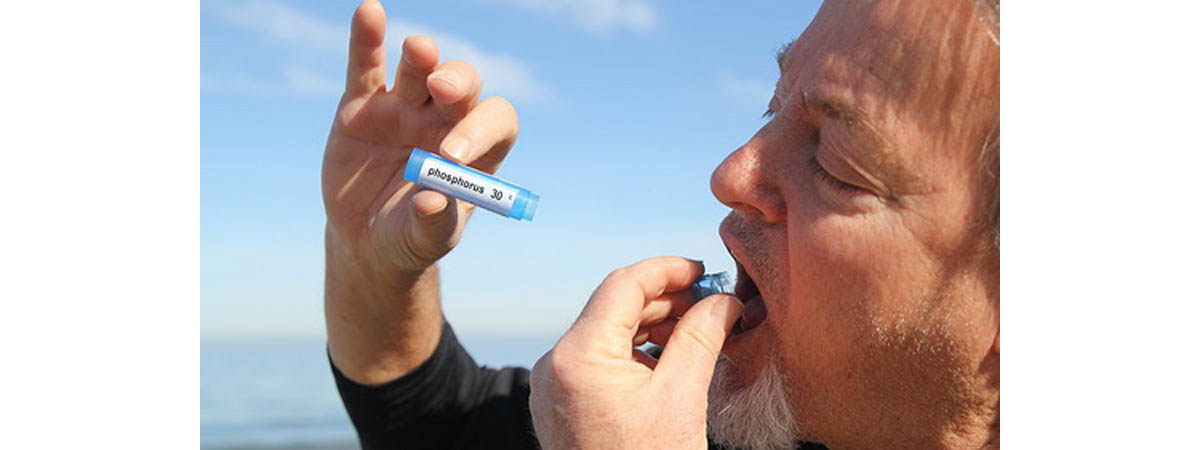Lung cancer is an especially insidious disease. Usually far advanced before symptoms are noticed, only 1 patient with metastatic lung cancer in every 50 stays alive for 5 years or more after their diagnosis, even with the most advanced medical treatment available today. (Lung cancer patients in the United States, many readers will be surprised to learn, typically live longer than lung cancer patients in other countries.)

A Nevada physician named James Forsythe of the Screening and Treatment Center of the Neavada and Century Wellness Clinic has been getting far better results with a homeopathic treatment, he says, some 39 percent of his patients surviving 5 years or more in a clinical trial concluded in 2010.
Why Is Lung Cancer So Hard to Treat?
Lung cancer is the second most common cancer in both men and women. Every year in the USA alone, about 215,000 people are diagnosed with lung cancer, and about 161,000 people die of lung cancer. Lung cancer is becoming less common among men, but more common among women.
About 85 percent of cancers of the lung are a kind of cancer termed non-small cell lung carcinoma. "Non-small" cells are normal-sized cells that have become cancerous. The other 15 percent of lung cancers of the are small cell lung carcinomas, which consist of tiny cells that have essentially no function except to reproduce. Non-small cell lung cancers don't spread as quickly as do small cell lung cancers, but these forms of cancer are quickly deadly, usually in a year or less.
By the time the condition begins causing the kinds of symptoms we might expect to see in lung cancer cases — such as cough, wheezing, or coughing up blood — tumors have usually grown to the point that they press on blood vessels or will have spread to the brain.
Lung cancer does not respond very well (or at all) to chemotherapy, so the treatment options available to patients are often limited to ever-changing combinations of chemotherapy drugs, surgery, or radiation. Treatment of the top of the lung, of course, disables the entire lung, and is often impossible.
Looking for a Better Way to Treat Lung Cancer
Since treatment for lung cancer can be literally as bad as the disease, Dr. Forsythe started looking for alternative treatment options decades ago. In the late 1990's he was employed by Nature's Sunshine to test a native American fruit, paw paw, as a potential cancer treatment. In a clinical study Forsythe directed, 28 percent of patients survived while taking paw paw for 3 years, without toxic reactions other than mild gastrointestinal upset in about 1 in 4 people who used the herb.
Then in 2004, Forsythe began researching a formula called poly-MVA, which combines alpha-lipoic acid with tiny amounts of the metal palladium. On this potent antioxidant formula, 30 percent of patients diagnosed at stage IV at the beginning of the study lived for 5 years (again, compared to 2 percent in studies examining the results of conventional lung cancer treatment). The FDA took a careful look at the study and allows the product to be sold without objection.
How Homeopathy Fights Lung Cancer
Even though 28 percent and 30 percent five-year survival rates for stage IV lung cancer patients represent a huge improvement over traditional chemotherapy, Dr. Forsythe wanted to do better. In a third set of clinical trials, Forsythe tested a homeopathic preparation on 19 volunteers. In this study, 7 patients, or 39 percent of the group, were still alive 5 years after the beginning of the study, with no side effects from the treatment.

What Are Homeopathic Medications?
When most commentators talk about "homeopathy," they are really talking about "homeopathic medications." In the practice of homeopathy, the doctor gives a homeopathic remedy chosen as a "similar" to whatever seems to be causing the patient's ailment. If someone has a rash, for example, the homeopath might administer an infinitesimally tiny amount of a caustic substance to "train" the body that it does not have to react to whatever is causing the rash with inflammation.
The reason most mainstream physicians and researchers are skeptical of homeopathic medicines is that the amount of the substance used in treatment can be so small that there is a real question whether it exists at all.
A treatment substance (the similar) may be diluted as many as 1,000,000,000,000,000,000,000,000,000,000 times, so many times that there is uncertainty whether there would be even a single molecule of the substance in the solution used to make the remedy (which is then dripped on to a sugar cube or a pill so it can be taken by mouth). Homeopathic researchers maintain that water "remembers" the substances placed in it and acts in the same way as a tiny, tiny dose of the toxin.
Obviously, homeopathic remedies don't cause side effects, given the fact that they are typically amost only water. But it is amazing that sometimes that they also manage to work — even on animals and microorganisms whom, we suppose, can't experience the placebo effect.
What Is Homeopathy?
Homeopathy, however, is not just about taking homeopathic pills. It is also about a relationship between the doctor and patient. To choose the right remedy, the homeopathic doctor does not just look at lab tests and choose a drug to treat the numbers on the lab report. The homeopathic doctor spends several hours getting to know the patient's lifestyle, medical history and personal history, diet, daily habits, and emotional issues.
Then on the basis of the totality of the information presented by the patient, the homeopathic physician identifies the "central delusion" of the patient that causes the body to imagine it cannot be healthy, which is corrected with the single remedy that is determined to be most likely to change the symptom pattern toward health.
Homeopathic remedies aren't something you take over and over again. They work, or they don't. But the relationship with the homeopathic physician continues after you take the therapy. And that may be the critical ingredient in homeopathy that really gets results — although there is just enough information from studies that did not involve doctor-patient interaction to lend credence to the idea that homeopathic medicines also work through some kind of as-yet unknown pharmacological mechanisms.
If You Have Lung Cancer, Does It Make Sense to See a Homeopath?
If you have lung cancer, and your doctor recommends an expensive and painful treatment that may or may not extend your life by a single month, it could well be that this is exactly what you want to try. Sometimes people need to come to resolution with the people in their lives or their personal histories, and that extra month makes that possible.
If possible, however, don't just take a homeopathic pill. See a homeopathic physician, and do so as early as possible after your lung cancer diagnosis. The process of interaction with the doctor may make a critical difference in your comfort and the course of your disease, as Dr Forsythe's research has shown.
- Sudheesh NP, Ajith TA, Janardhanan KK, Krishnan CV. Effect of POLY-MVA, a palladium alpha-lipoic acid complex formulation against declined mitochondrial antioxidant status in the myocardium of aged rats. Food Chem Toxicol. 2010 Jul.48(7):1858-62. doi: 10.1016/j.fct.2010.04.022. Epub 2010 Apr 20.
- Shneerson C, Taskila T, Gale N, Greenfield S, Chen YF. The effect of complementary and alternative medicine on the quality of life of cancer survivors: A systematic review and meta-analyses. Complement Ther Med. 2013 Aug. 21(4):417-29. doi: 10.1016/j.ctim.2013.05.003. Epub 2013 Jun 3.
- Photo courtesy of Sgerbic by Wikimedia Commons : en.wikipedia.org/wiki/File:Mark_Edward_phosphorus_overdose.JPG
- Photo courtesy of caseywest by Flickr : www.flickr.com/photos/13897254@N00/359144030


Your thoughts on this